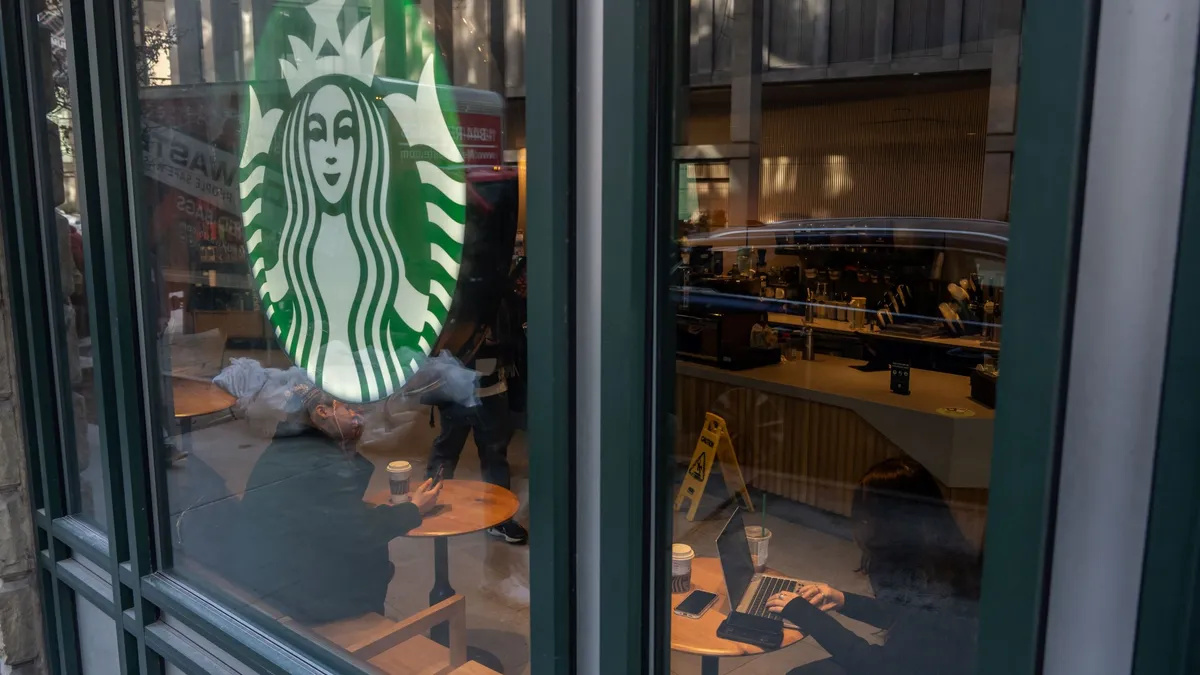Dive Brief:
- Starbucks discriminated on the basis of race and sex through its diversity, equity and inclusion programs in violation of Missouri and federal civil rights laws, Missouri Attorney General Andrew Bailey alleged in a lawsuit filed Feb. 11 in the U.S. District Court for the Eastern District of Missouri.
- The complaint in Missouri v. Starbucks Corp. specifically alleged that the coffee chain employed race- and sex-based quotas in its hiring practices, executive compensation and training programs. It also claimed that Starbucks’ partner networks — a collection of internal employee resource groups — unlawfully segregated employees and gave “preferred minorities” additional job benefits.
- A Starbucks spokesperson denied the allegations in an email to HR Dive. “Our programs and benefits are open to everyone and lawful,” the spokesperson said. “Our hiring practices are inclusive, fair and competitive and designed to ensure the strongest candidate for every job every time.”
Dive Insight:
Starbucks has been the target of discrimination lawsuits and legal threats because of its DEI work for more than two years, so Missouri’s lawsuit is not unprecedented. However, the complaint does come at a critical time for DEI programs generally, and Starbucks is one of several prominent U.S. corporations that have been forced to defend that work in court.
In 2022, the conservative America First Legal Foundation urged the U.S. Equal Employment Opportunity Commission to investigate Starbucks’ DEI programs, claiming that two of the company’s mentorship programs discriminated against White and Asian employees. A lawsuit filed that same year alleged that Starbucks’ diverse hiring programs were discriminatory, and a judge dismissed the suit in 2023.
Missouri’s lawsuit alleged that Starbucks’ partner networks perpetuated discrimination at the company, specifically by providing “targeted training for advancement” to members of those networks. Employee resource groups have long been identified as a mechanism for providing development opportunities to employees from diverse backgrounds, but Missouri claimed that Starbucks’ provision of training benefits to specific groups violates federal and state laws.
More broadly, the state claimed that Starbucks’ use of “non-merit considerations will skew the hiring pool towards people who are less qualified to perform their work, increasing costs for Missouri’s consumers.”
Though the lawsuit represents an action by one state, private-sector employers also face potential enforcement actions at the federal level under the Trump administration. President Donald Trump signed an executive order in January directing federal agencies to submit a report by May 21, 2025, outlining recommendations for encouraging private-sector employers to end DEI programs.
These actions are already having a noticeable effect. For example, multiple large banking entities have rolled back or scrapped DEI programs, Banking Dive reported. Such cuts are part of a growing list of rollbacks across a broad swath of the economy.
Employers might be able to recalibrate their DEI programs to ensure that their messaging is focused on the provision of inclusive and fair workplaces as well as preventing discrimination on the basis of race or sex, a former EEOC commissioner said earlier this month.














